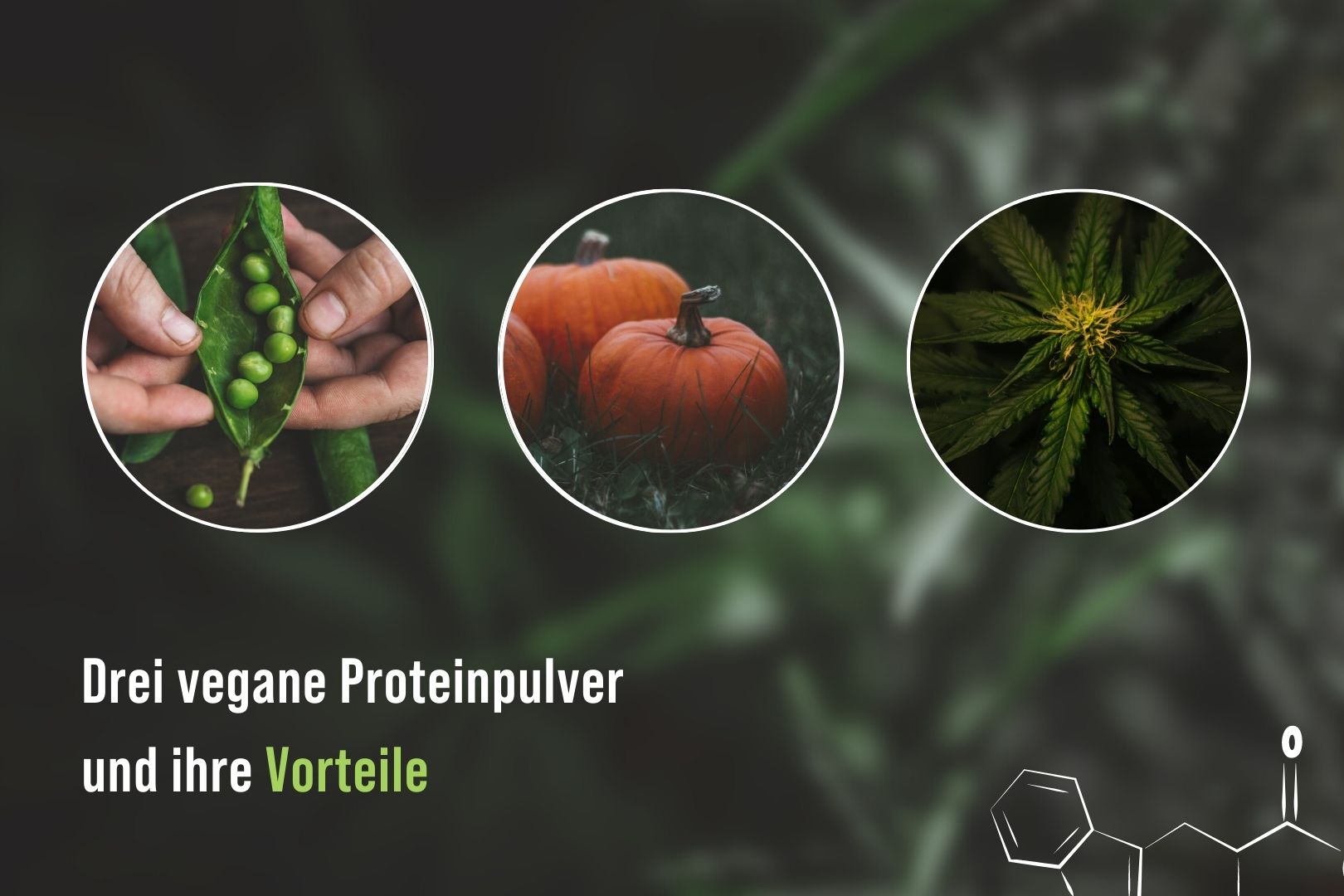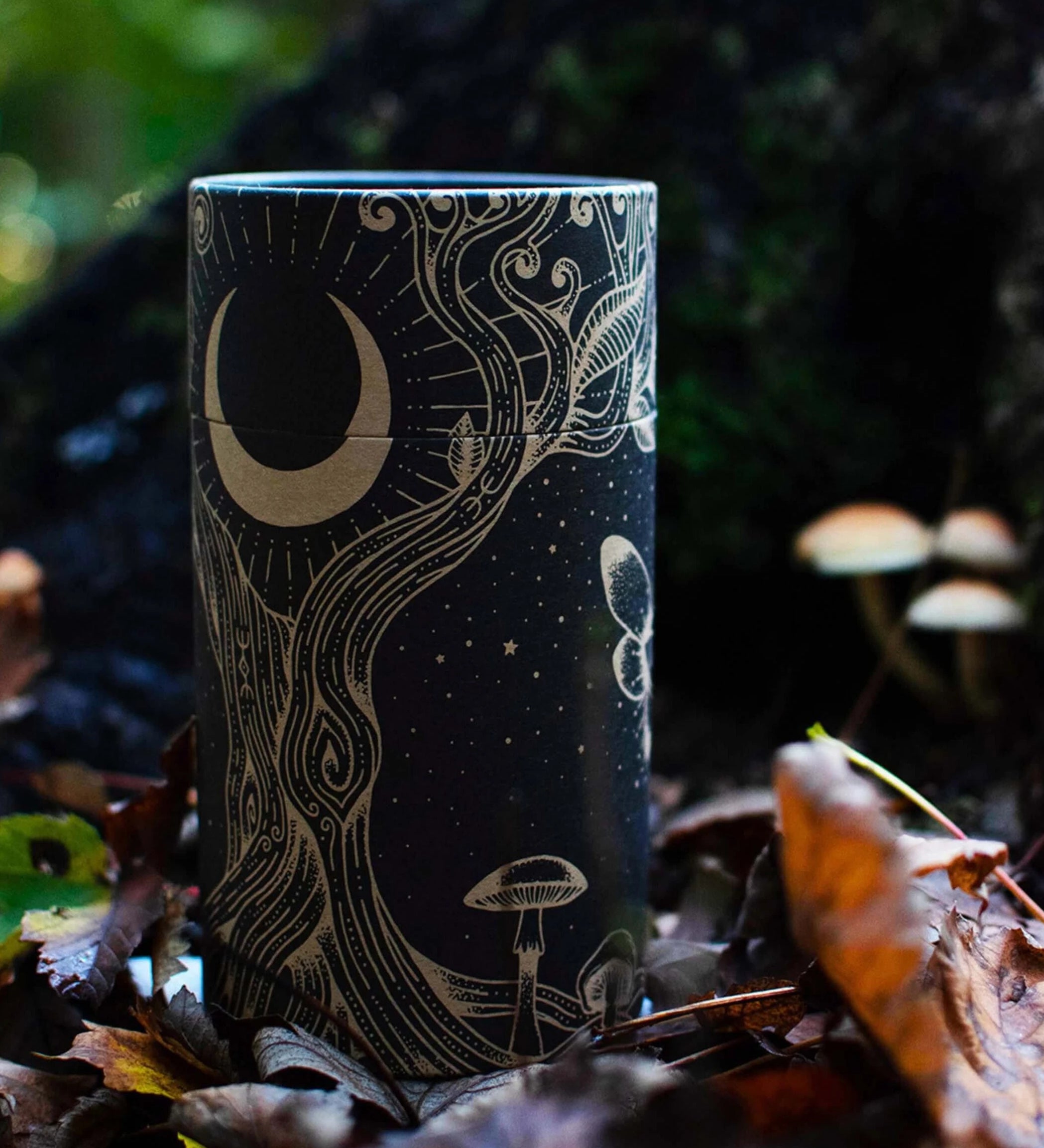Three vegan protein powders and their benefits

Which vegan protein powder is currently the best? As manufacturers of natural protein powders and as nutritionists, we often hear this question from people who are looking for a plant-based protein source. At the same time, they often ask themselves which protein powder is best for their health.
Are you also wondering about the best vegan protein powder?
If you have decided on a plant-based diet or simply want to increase your amount of vegan proteins per day, your individual situation should be taken into account. Many factors influence the best vegan protein powder.
Possible factors influencing the suitability of vegan protein powders are:
- the amino acid profile
- the production
- beneficial components , such as fatty acids and minerals
- harmful components , such as allergens
- ingredients that may seem unknown at first glance (and harmful to your individual health).
In this article we will briefly and succinctly inform you about three of the best plant-based protein sources , which, especially when combined, have many positive influences on your health.

Which vegan protein powder should I choose?
If you are looking for a vegan protein powder that doesn't expose you to the possible health risks of soy protein ,...
- Pea protein powder
- Hemp protein powder
- Pumpkin seed protein powder
as excellent vegan protein sources .
If you would like to read more about why we decided against using soy protein in our products, you can do so in this article .
One thing first: We never recommend an unbalanced diet. This means neither covering your daily requirements exclusively through protein shakes nor getting protein from a single protein source. Variation and diversity are crucial for a healthy lifestyle. And Food First remains an unshakable principle!
Our biological value table is a good starting point for you to understand the added value of protein mixtures.
What is important: A multi-component mixture (i.e. a protein powder, which contains, for example, hemp, pumpkin seed and pea protein) uses the advantages of different protein sources and creates synergy effects. This means you can get more essential amino acids from relatively less protein intake. This saves calories and your wallet!
Pea protein – the amino acid miracle
Pea protein is known for its very good amino acid profile. This means that your body uses this protein very well to build cells and protect your immune system. At the same time, pea protein is good for building and maintaining muscle.

Pea protein is almost as valuable as animal whey protein. If you follow a vegan diet, look for plant-based products that are based on dried peas. Unfortunately, cooked peas lose a lot of the useful proteins. Dried peas contain up to five times the amount of protein compared to cooked peas. Dried approx. 25g, cooked approx. 5g per 100g. It is therefore worth choosing high-quality pea protein powder.
Pea protein is also low in allergens, which means it has huge advantages over soy protein. In addition to the antioxidant active ingredients, it is also very rich in iron. Approximately three pea protein shakes per day can provide 80-90% of an adult woman's total iron needs. This would correspond to around 60-80g of pea protein from shakes per day.
For these reasons, pea protein is one of the favorites among vegan protein powders.
Hemp protein – The plant protein with the best tolerance
Hemp protein is considered an outstanding source of essential fatty acids and contains many secondary plant substances that have anti-carcinogenic effects. This makes it an excellent option for people who want to prevent or fight cancer. It is also very rich in minerals. Here you will find magnesium, zinc and iron. Zinc and iron are considered critical nutrients, especially in vegan diets.

Among the fatty acids, hemp protein provides Omega 3, which is extremely valuable for the body. Especially in the meal landscape dominated by Omega 6 in Germany, an increased intake of Omega 3 is extremely important for our balance. Any additional source of Omega 3 can be consumed almost safely.
The body should have an optimized Omega 3:Omega 6 ratio of 1:1. This is actually rarely possible. Good, achievable values are 1:3 – 1:5. Studies and especially the DGE (German Society for Nutrition) show that in Germany we have an O3:O6 ratio of 1:10-1:15. This promotes inflammatory processes in the body. Omega 3 can reduce these processes again! Therefore, when it comes to hemp proteins, you should always buy them with a clear conscience.

The overall amino acid profile of hemp protein is worse than that of pea protein. In contrast to soy protein, this is less of a problem with hemp protein because the amino acid profile is higher overall. To put it simply, the relationship between the individual amino acids is more similar to that of humans. This allows it to be quickly absorbed and processed by the body. Overall, the bioavailability can be rated as very good.
Hemp is also the only plant that produces the protein edestin , a highly digestible protein that stimulates the antibody production process. It is considered the most digestible plant protein!
This is partly because it is very similar to the globulin in blood plasma. This could also be the reason why there are no known food allergies to hemp foods.
Hemp protein actually has helpful plant substances. When combined with other proteins, it can not only increase the value, but also provide other health-promoting effects.
In addition, hemp protein provides fiber. These promote the work performance of your intestines. Whereby hemp protein can have a positive effect on healthy digestion. A final, decisive advantage of hemp protein compared to soy protein, for example, is the lower proportion of multiple sugars.
In summary, hemp protein is therefore ideal as a supplement to other protein sources in a powder made from different protein sources. Almost a miracle cure among vegan protein powders.
Pumpkin seed protein – rich in minerals and taste tip
Just like hemp protein, pumpkin seed protein is very rich in minerals and fiber. It provides iron, zinc, potassium, copper, selenium, manganese, phosphorus and magnesium.

In addition to the strong health benefits of its antioxidant effects, pumpkin seed protein is often chosen in protein preparations because of its taste. It enriches plant-based dishes and vegan protein powder mixtures with a slightly nutty taste. The advantage is that this taste experience is created without additional sugar. Because, just like hemp protein, pumpkin seed protein is also very low in carbohydrates. That's why it's particularly popular with athletes who follow a vegan diet.
Pumpkin seed protein is lactose, gluten and cholesterol free.
In summary, pumpkin seed protein is also a suitable isolated protein source, but even better, an additional protein source.
Conclusion on vegan protein powders:
In this article we showed you the most important advantages of different vegan protein sources. It is precisely because of these advantages that we at Lykaia use all of the sources mentioned in our vegan protein powder. Both pea, hemp and pumpkin seed protein have diverse, almost unbelievable benefits for your health.
All three are proven to be health-promoting and allow you to safely cover your protein needs with a purely plant-based diet, for example. The possible disadvantages of a soy protein preparation are of little or no importance here!
Did you like this post? Subscribe to our newsletter and find out weekly news about our products and receive free tips about your health.
Your Lykaia team
0 comments








